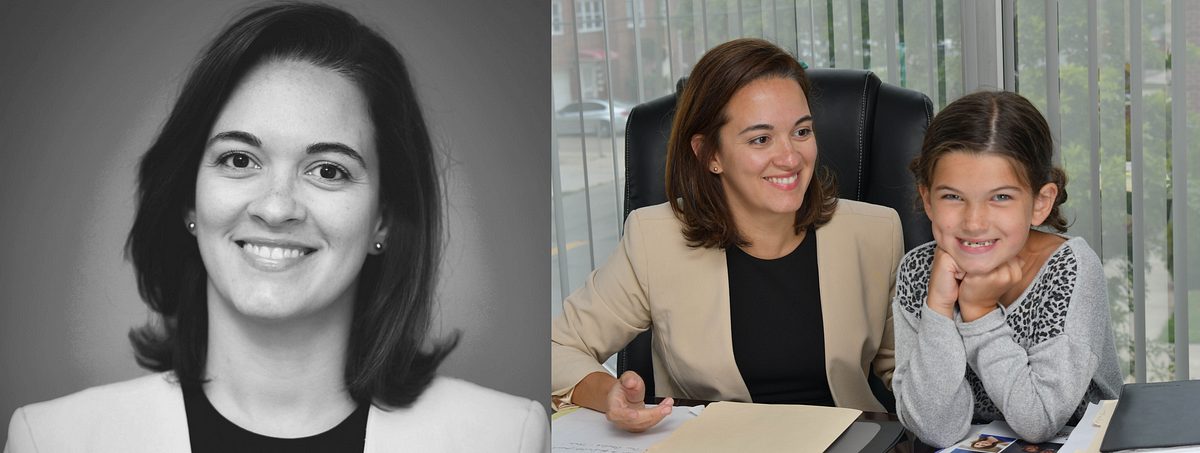Social Impact Heroes: How Amanda Talty of The Tourette Association of America is helping to support people living with Tourette Syndrome

Closed mouths don’t get fed. If you aren’t asking for what you want, you will likely not get it.
Find your tribe. Its important to surround yourself with people who encourage you, support you and when necessary, dispense a little tough love.
If you are comfortable, you are doing something wrong. Its important to always push yourself outside your comfort zone because that is where the growth happens.
As part of my series about companies and organizations making an important social impact, I had the pleasure of interviewing Amanda Talty, CEO/President of The Tourette Association of America.
Amanda brings over 15 years of experience developing and implementing strategic programs designed to spark organizational growth and sustainability. Prior to joining the Tourette Association of America, Amanda served as Senior Major Gift Officer at the American Red Cross on Long Island where she facilitated over $1 million in new revenue within the first year. Her development experience encompasses organizations big and small, public and private and she is passionate about bringing values to life through philanthropy. Amanda received her BA in Sociology and Communications from Hofstra University and her MPA from Baruch College.
Thank you so much for doing this with us Amanda! Before we dig in, our readers would like to get to know you a bit. Can you tell us a bit how you grew up?
I was raised by my father in a working-class neighborhood on Long Island. My mother had been diagnosed with bi-polar disorder when I was young, and they divorced when I was about 7 years old.
You are currently leading a social impact organization. Can you tell us a bit about what you and your organization are trying to change in our world today?
The world can be a cold place for those with differences and especially for those who cannot control socially inappropriate movements and sounds. We want to ensure people living with Tourette Syndrome receive the support services they need, are not discriminated against, and have access to diagnosis and treatment.
Can you tell us the backstory about what inspired you to originally feel passionate about this cause?
As mentioned earlier my family has a history of mood disorders and it put a strain on me as I was growing up. When I was introduced to the Tourette Association of America, I realized many of the people the organization serves struggle with similar issues. But unlike mental health, there is only one organization serving the TS community. Only one organization dedicated to funding research into the causes and treatments for TS. Only one organization working to eradicate the stigma and provide support to families nationally. Without the TAA, where would families turn? It was that question that stuck with me and that questions remains with me still.
Many of us have ideas, dreams, and passions, but never manifest it. They don’t get up and just do it. But you did. Was there an “Aha Moment” that made you decide that you were actually going to step up and do it?
Tourette Syndrome is so misunderstood and mocked. When I thought about the 1 in 100 kids struggling each day to control their own bodies and that fact that 50% are going undiagnosed, it was no brainer.
Many young people don’t know the components involved in leading a nonprofit organization. What are some things that you’d like people to know about nonprofit work?
Non-profit work isn’t easy and at times it can be thankless. I think people go into the field with the best of intentions but forget that, at the end of the day, non-profits are businesses too. We have budgets and have to make tough decisions on how to best use the limited resources we have. Non-profits have to demonstrate impact to ensure it can convince donors they are a worthy investment. We aren’t selling widgets. We are selling something even less tangible at times, hope. And that’s not always an easy thing to sell or provide. It takes determination, a thick skin, quick thinking and a wicked sense of humor.
Can you share the most interesting story that happened to you since you began leading your company or organization?
The most poignant moment for me was when I met with a longtime donor of the organization who had severe tics for most of his life. He said to me, and I’ll never forget his words, “The things you take for granted, going to the movies, having dinner at a restaurant, spending a quiet evening at home…. Those are things I can’t enjoy.” He explained that his tics drew attention from others and even those who loved him and understood him are still distracted by them. His life was comprised in avoiding moments many of us live for and look forward to.
Can you share a story about the funniest mistake you made when you were first starting? Can you tell us what lesson or take away you learned from that?
Say what you think but be prepared for folks not to care.
None of us can be successful without some help along the way. Did you have mentors or cheerleaders who helped you to succeed? Can you tell us a story about their influence?
My biggest mentor was my father. He empowered me to make my own decisions and mistakes while also reminding me there is a world out there that will keep moving without me.
Can you tell us a story about a particular individual who was impacted or helped by your cause?
There are several. I was most moved at a recent training we hosted for Rising Leaders, young adults impacted by TS between the ages of 18–25. One of the trainees expressed how lonely she felt not knowing anyone else in her area living with TS and how important being a part of this training was to her. She was emotional and it deeply impacted me. To know in that moment she found a community and endured so much pain and hardship leading up to that and we had a part to play in making her life more whole…. Needless to say, I was an emotional wreck in the happiest of ways!
Are there three things the community/society/politicians can do to help you address the root of the problem you are trying to solve?
YES! Learn about what TS is and more importantly what its not, remember to be compassionate and if you do not understand why someone is doing something just ask, and finally contribute to our cause. Visit tourette.org to learn more about how you can help.
What are your “5 things I wish someone told me when I first started” and why. Please share a story or example for each.
- Closed mouths don’t get fed. If you aren’t asking for what you want, you will likely not get it.
- Find your tribe. Its important to surround yourself with people who encourage you, support you and when necessary, dispense a little tough love.
- If you are comfortable, you are doing something wrong. Its important to always push yourself outside your comfort zone because that is where the growth happens.
- Self-awareness and authenticity is the new currency. You have to know your blind spots and you need to surround yourself with people who see them for what they are and aren’t afraid to tell you. (See #2)
- Do not be afraid to ask the hard questions or speak about the elephant in the room. People may not agree with you, but they will respect you for speaking up. And if they don’t, who cares? (See #2)
If you could tell other young people one thing about why they should consider making a positive impact on our environment or society, like you, what would you tell them?
Doing good feels good but it is not easy. You must really care. You cannot fake it.
Is there a person in the world, or in the US with whom you would like to have a private breakfast or lunch with, and why? He or she might just see this, especially if we tag them. 🙂
Billie Eilish and her family!
How can our readers follow you online?
Social media –
- Twitter: @atalty
- Instagram: @amtalty
- Sign up to receive TouretteConnect, a monthly update from me about our organization: https://secure.everyaction.com/2Z_ZuXO1NU6xgvHeqrTUHw2


